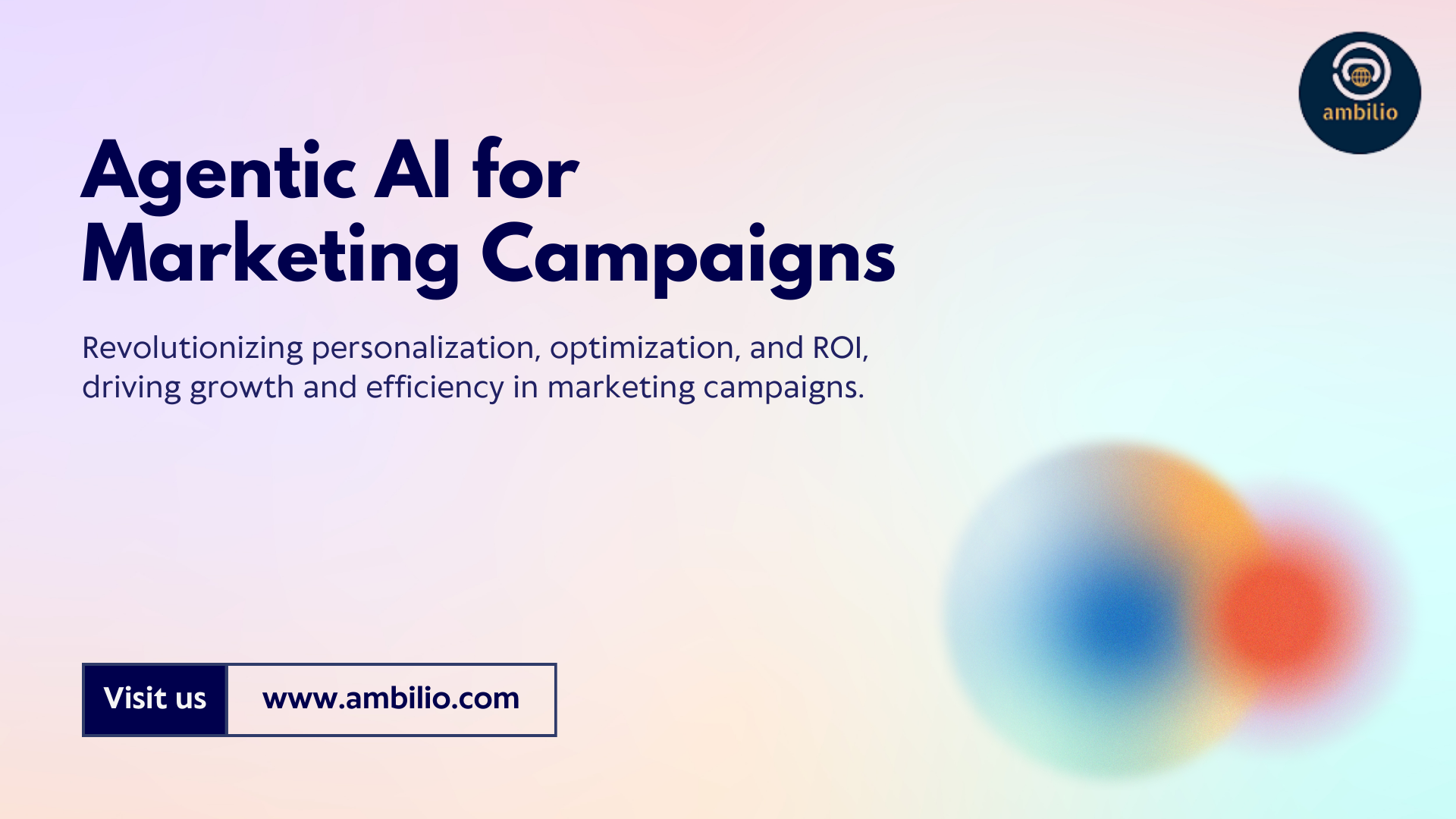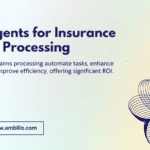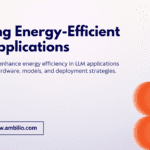In an era where consumers are more connected than ever, businesses face the challenge of delivering highly personalized, data-driven marketing strategies to capture attention and increase engagement. Traditional marketing methods struggle to keep pace with the sheer volume of data and the increasing expectations for real-time, tailored customer experiences. This is where Agentic AI for Marketing Campaigns, powered by generative AI and large language models (LLMs), offers a groundbreaking solution. By automating tasks, making adaptive decisions, and creating dynamic content, agentic AI helps businesses optimize their marketing efforts and achieve measurable returns.
Challenges in Traditional Marketing Campaigns
Marketing in today’s digital landscape is complex and ever-evolving. Several key challenges are pushing businesses to rethink their strategies:
1. Managing Data Complexity
Marketers have access to massive amounts of data, including customer demographics, purchasing behavior, social media activity, and campaign performance metrics. While this data is valuable, manually analyzing it to generate actionable insights is time-consuming and inefficient. The inability to process data at scale often results in missed opportunities and delays in responding to market trends.
2. Delivering Personalization at Scale
Consumers expect personalized interactions. However, tailoring marketing campaigns for each individual based on their preferences and behaviors requires significant resources. Most traditional marketing strategies fall short, leading to generalized campaigns that fail to resonate with consumers on a deeper level.
3. Real-Time Campaign Optimization
Traditional marketing campaigns often lack the ability to adapt in real-time. Campaigns are typically analyzed after they have ended, making it difficult to adjust strategies mid-campaign. This reactive approach limits the ability to optimize and improve performance dynamically.
4. Content Creation Bottlenecks
Creating unique, engaging content for multiple channels and audience segments is labor-intensive. Marketing teams are often stretched thin, struggling to keep up with the demand for fresh, relevant content, which can lead to delays and missed opportunities to engage with customers.
5. Repetitive Manual Tasks
Marketing teams spend significant time on repetitive tasks, such as audience segmentation, A/B testing, and managing customer interactions. These activities take valuable time away from higher-level strategic planning and creative thinking.
How Agentic AI for Marketing Campaigns Solves These Problems
Agentic AI for Marketing Campaigns offers a powerful solution to these challenges by leveraging generative AI and LLMs to automate, adapt, and enhance marketing strategies. Agentic AI goes beyond automation by making decisions autonomously, optimizing campaigns, and personalizing experiences in real-time.
1. Advanced Data Analysis and Insights Generation
Agentic AI processes vast amounts of data from multiple sources—such as customer interactions, market trends, and campaign performance metrics—using machine learning algorithms and LLMs. It can identify patterns and generate actionable insights faster than human teams. This enables businesses to make data-driven decisions, anticipate customer needs, and fine-tune their marketing strategies quickly.
2. Hyper-Personalized Customer Experiences
Agentic AI excels in delivering hyper-personalized marketing experiences. By analyzing individual customer behaviors and preferences in real time, it creates Digital Twins—virtual representations of customers. These Digital Twins help agentic AI systems anticipate customer needs and deliver tailored recommendations, offers, and content. The result is a deeper connection with customers, fostering loyalty and boosting engagement.
3. Real-Time Campaign Optimization
Unlike traditional campaigns, which rely on post-hoc analysis, Agentic AI for Marketing Campaigns uses predictive analytics to forecast campaign performance and adjust strategies on the fly. It monitors ongoing campaigns in real-time, identifying areas for improvement and suggesting changes dynamically. This proactive approach ensures that campaigns are continuously optimized for maximum impact, even as market conditions evolve.
4. Automated Content Creation
Generative AI within agentic systems automates content creation by crafting emails, social media posts, advertisements, and more based on customer preferences and industry trends. The content is highly relevant to each audience segment, maintaining engagement while reducing the workload on creative teams. This not only ensures consistent, high-quality content across channels but also enables faster campaign launches.
5. Intelligent Automation of Marketing Workflows
Agentic AI can automate routine tasks like customer segmentation, A/B testing, and responding to customer inquiries. By managing these activities autonomously, marketing teams are freed from the burden of repetitive tasks, allowing them to focus on strategic initiatives. For example, agentic AI can segment audiences based on behavior patterns, ensuring personalized messaging without manual effort.
Quantifiable Benefits and ROI of Agentic AI for Marketing Campaigns
Implementing Agentic AI for Marketing Campaigns offers businesses tangible, quantifiable benefits. These AI systems drive both operational efficiency and revenue growth, delivering a compelling return on investment (ROI).
1. Improved Personalization and Customer Engagement
Personalized marketing is proven to increase customer engagement and loyalty. Agentic AI enhances this by creating hyper-personalized experiences that resonate with individuals. According to industry reports, personalization can increase customer engagement by 20-30%, resulting in higher click-through rates and conversions. Furthermore, personalized product recommendations can boost conversion rates by 10-15%.
2. Enhanced Efficiency and Time Savings
By automating routine marketing tasks, businesses can significantly reduce the time spent on manual work. Agentic AI can cut the time required for tasks like audience segmentation, content creation, and campaign optimization by 50-60%, allowing teams to launch campaigns faster and at a lower operational cost. This increased efficiency translates to cost savings, freeing up resources for more strategic efforts.
3. Higher Campaign Effectiveness
With real-time optimization and dynamic content generation, Agentic AI for Marketing Campaigns ensures that campaigns are constantly refined for better performance. Companies using AI-driven marketing tools report an increase in conversion rates by 15-20% due to enhanced targeting and personalized messaging. This leads to a higher return on ad spend (ROAS), improving overall campaign ROI.
4. Cost Reduction in Creative and Operational Tasks
Generative AI reduces the need for human intervention in content creation, lowering costs associated with hiring additional creative talent or outsourcing content development. Additionally, AI-driven automation of marketing workflows can reduce operational overhead by up to 30%, cutting down on labor costs and increasing overall profitability.
5. Revenue Growth
By enhancing customer engagement, improving conversion rates, and reducing operational costs, Agentic AI for Marketing Campaigns can significantly impact revenue. Businesses leveraging AI-driven marketing have reported revenue increases of 25-40%, driven by improved customer lifetime value and more effective marketing strategies.
Final Words
The adoption of Agentic AI for Marketing Campaigns is revolutionizing the way businesses approach marketing. By automating data analysis, personalizing customer experiences, optimizing campaigns in real-time, and generating content autonomously, agentic AI helps businesses stay ahead in a competitive marketplace. The quantifiable benefits, from improved engagement and efficiency to increased revenue and reduced costs, demonstrate a compelling ROI for businesses investing in this technology. As agentic AI continues to evolve, it will play an even more significant role in shaping the future of marketing, enabling brands to connect with consumers in more meaningful and impactful ways.



